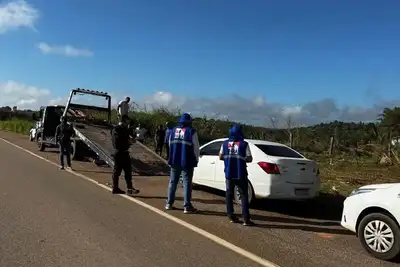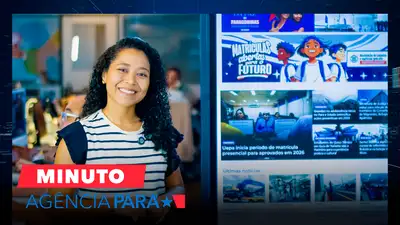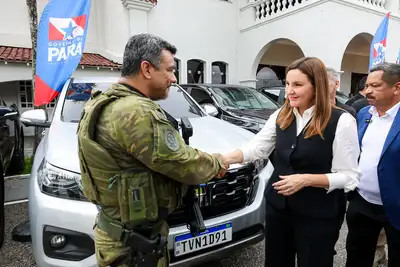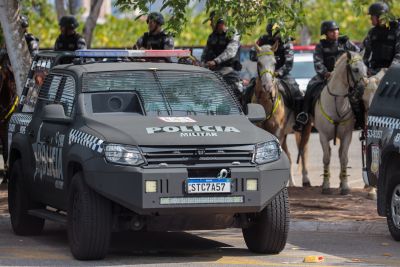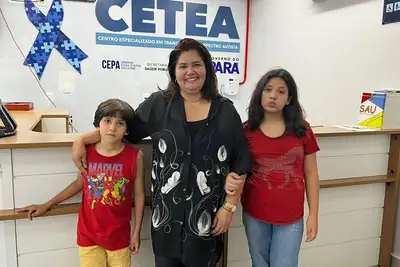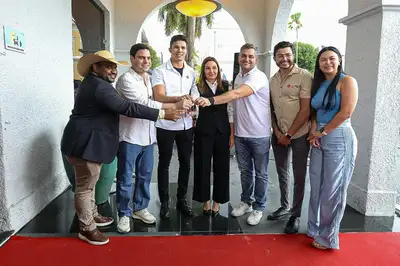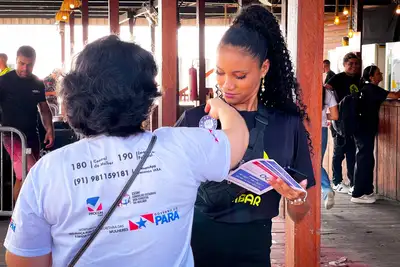Uepa: training and science mark the Day of the Physical Education Professional
The State University of Pará was the institution that offered the first Bachelor's degree in Physical Education in Pará and in the Northern region of the country
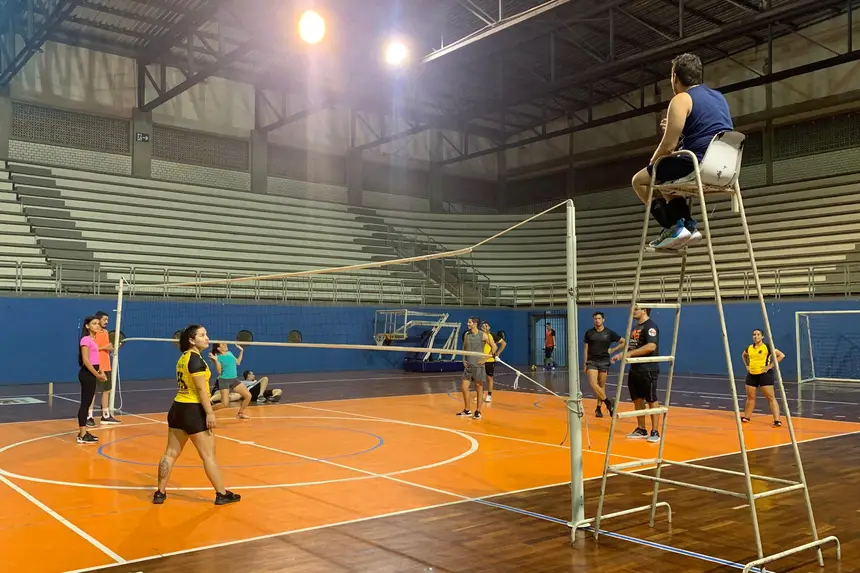
The Day of the Physical Education Professional, celebrated on September 1st, reinforces the importance of university education as a foundation for qualified performance, which combines science and social commitment in promoting health and well-being, in addition to highlighting the fundamental role of scientific research for the advancement of the field and for the construction of increasingly safe and effective practices. Pioneeringly, the State University of Pará (Uepa) was the institution that offered the first Bachelor's degree in Physical Education in Pará and in the Northern region of the country.
The first class was formed in the 1970s, at the Higher School of Physical Education, now Campus III of Uepa, created in May 1993 through the merger of state colleges, including that of Physical Education. Campus III is linked to the Center for Biological and Health Sciences (CCBS).
Among the recent research, the final course project "The repercussions of Physical Education Consulting through Social Networks Post-Pandemic" was one of the studies among the top three of the Best TCC Award 2023-2024 of the Physical Education course at Uepa. The research was conducted by students João Rafael Araújo Mourão and Pedro Roberto Gonçalves Marcelino, with guidance from Professor Edna Cristina Santos Franco, and Professor Robson Domingues as co-advisor.
The study combined science and post-modern digital times and analyzed online consulting in Physical Education on social networks with the health crisis of the Covid-19 pandemic. The analysis was based on 12 articles from the databases SciELO, PubMed, and Scopus, and identified that this scenario is marked by weaknesses, such as lack of oversight, absence of clear regulations, and the involvement of non-professionals.
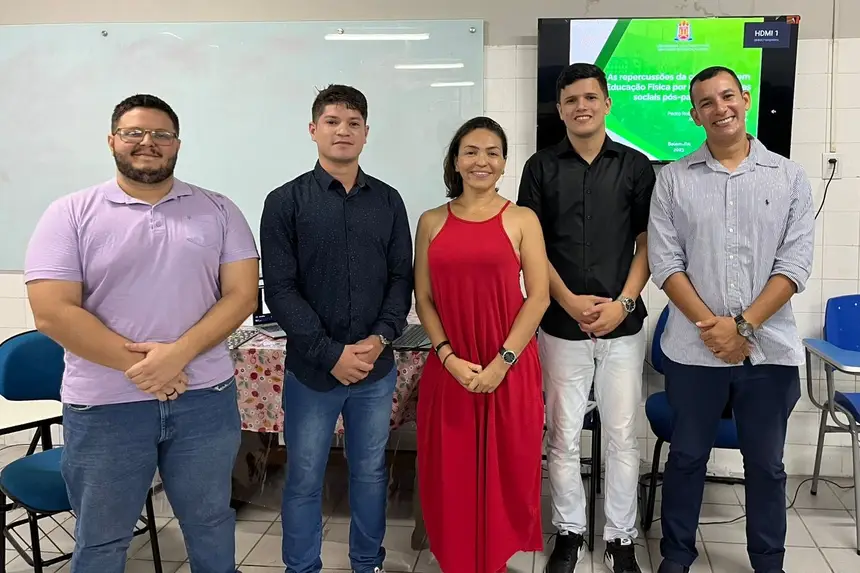
According to student João Rafael, the study shows that the work of online personal trainers in the post-pandemic faces challenges such as competition with digital influencers and lack of regulation. "It pointed out the need for skills in resilience, flexibility, continuing education, and digital marketing, as well as the need for greater oversight by the competent authorities. It advocates for the inclusion of content on ethics, professional posture, and marketing in Physical Education courses and shows that, when conducted by qualified professionals, online consulting is a promising strategy to promote health and quality of life," he reported.
For the advisor, the work addressed the use of social networks by physical education professionals and highlights the need for oversight in exercise prescription, "which should only be performed by a physical educator, but is often done by digital influencers without training," she said. She also emphasized the importance of preparing new professionals for this expanding market. The research warns that poorly guided practices can lead to serious health consequences, such as injuries and worsening of pathologies, explains Professor Edna.
The work contributes by discussing a theme that is little explored in the post-pandemic context and indicates the need for new studies on the strategies of Online Personal Trainers, in addition to discussing the importance of implementing subjects such as ethics in the virtual environment in Physical Education courses. It also suggests greater dialogue with regulatory bodies to reinforce oversight of online consulting and strengthen the category to raise awareness in society about the risks of practice without qualified professionals, according to the advisor.
Course - In Belém, the Physical Education campus has contributed for 55 years to the academic training of professionals in the category in Pará. The campus has an auditorium, classrooms, library, playroom, Olympic swimming pool, changing rooms, gymnasium with stage and court, gymnastics gym, among other spaces such as the Physical Education course gym, where the Laboratory of Resistance Exercise and Health (Leres) operates.
Campus III/Physical Education plays an important social role by offering sports modalities in Belém, open to children, adults, and the elderly through free courses and adapted activities. These extension actions contribute both to community service and to the excellent training of graduates in Physical Education. Also, as a way to combat sedentary behavior and promote more health to the academic community, the Movimenta Uepa project was installed on campus III, which guarantees physical exercise for Uepa staff aged 30 to 65, with functional training and dance classes.
Currently, the course offers a bachelor's degree and a degree, with about a thousand students, through the regular course, in Belém, Altamira, Tucuruí, Santarém, and Conceição do Araguaia. The course also operates modularly through the Forma Pará program in the municipalities of Tracuateua, Capitão Poço, São Francisco, and Terra Santa.
"I am pleased to take on the Coordination of the Physical Education Course at Uepa, an institution where I graduated and that marked my trajectory. As an alumnus and faculty member, I return with the commitment to strengthen the training of new teachers, contribute to academic quality, and enhance teaching, research, extension, and graduate studies," said Professor Adnelson Araújo dos Santos.
More information about the course at Campus III/Physical Education, located at Avenida João Paulo II, 817, Bairro do Marco, in Belém.
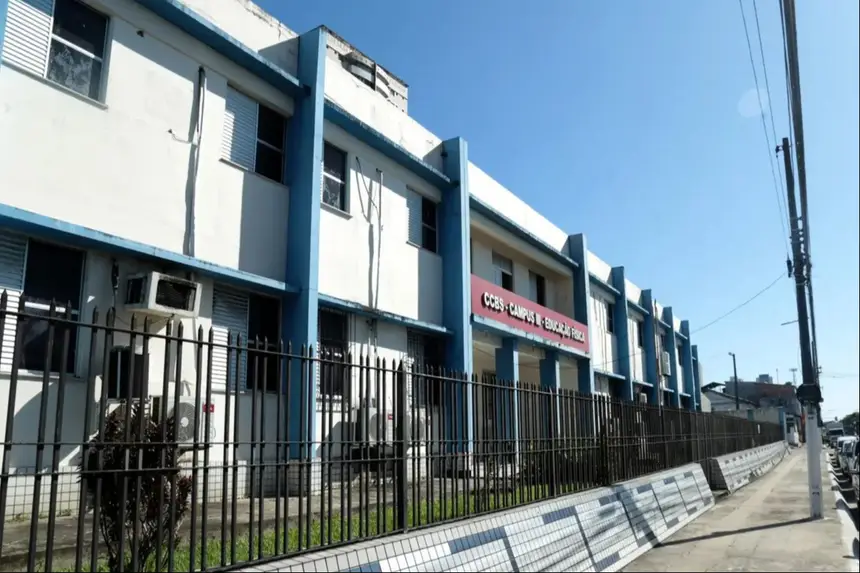
Postgraduate - Among the new postgraduate courses at Uepa, at Campus III, are the Postgraduate Program in Rehabilitation and Functional Performance (PPGREAB) and the PPG in Methodology of Teaching Gymnastics and Dance (PPGMDG), a lato sensu specialization, which is open for enrollment until September 18, on the Uepa website, open to professionals from various areas and backgrounds.
And also the IV Specialization Course (lato sensu postgraduate) in Pedagogy of Body Culture, in a semi-presential and free modality, in Belém, which aims to qualify teachers with initial training in Bachelor's degree in Physical Education, for the improvement of pedagogical practice in teaching school Physical Education. The course is scheduled to start on September 11.
The PPGREAB, academic master's degree stricto sensu, started in 2024 and will now go to its second class of the course. The master's program belongs to area 21 of the Coordination for the Improvement of Higher Education Personnel (Capes), which encompasses the courses of Physical Education, Physiotherapy, Speech Therapy, and Occupational Therapy, meeting a demand for postgraduate studies in the area. The PPGREAB is the third in the Northern region in area 21 (Physical Education) and the first in Rehabilitation and Functional Performance, ensuring significant scientific development in this line for the region and the country.
Opening Lecture - The PPGREAB will hold an opening lecture for the second class of the PPG on "Artificial Intelligence in the Academy" this Friday, the 5th, at 2 PM. The special guest to give the lecture will be Professor Arthur de Sá Ferreira, coordinator of the PPG in Rehabilitation Sciences at the Augusto Motta University Center (Unisuam/RJ). The opening lecture will be open and free for the academic community, in the auditorium of Ueafto/CCBS, at Campus II, Trav. Perebebuí, No. 2623.



